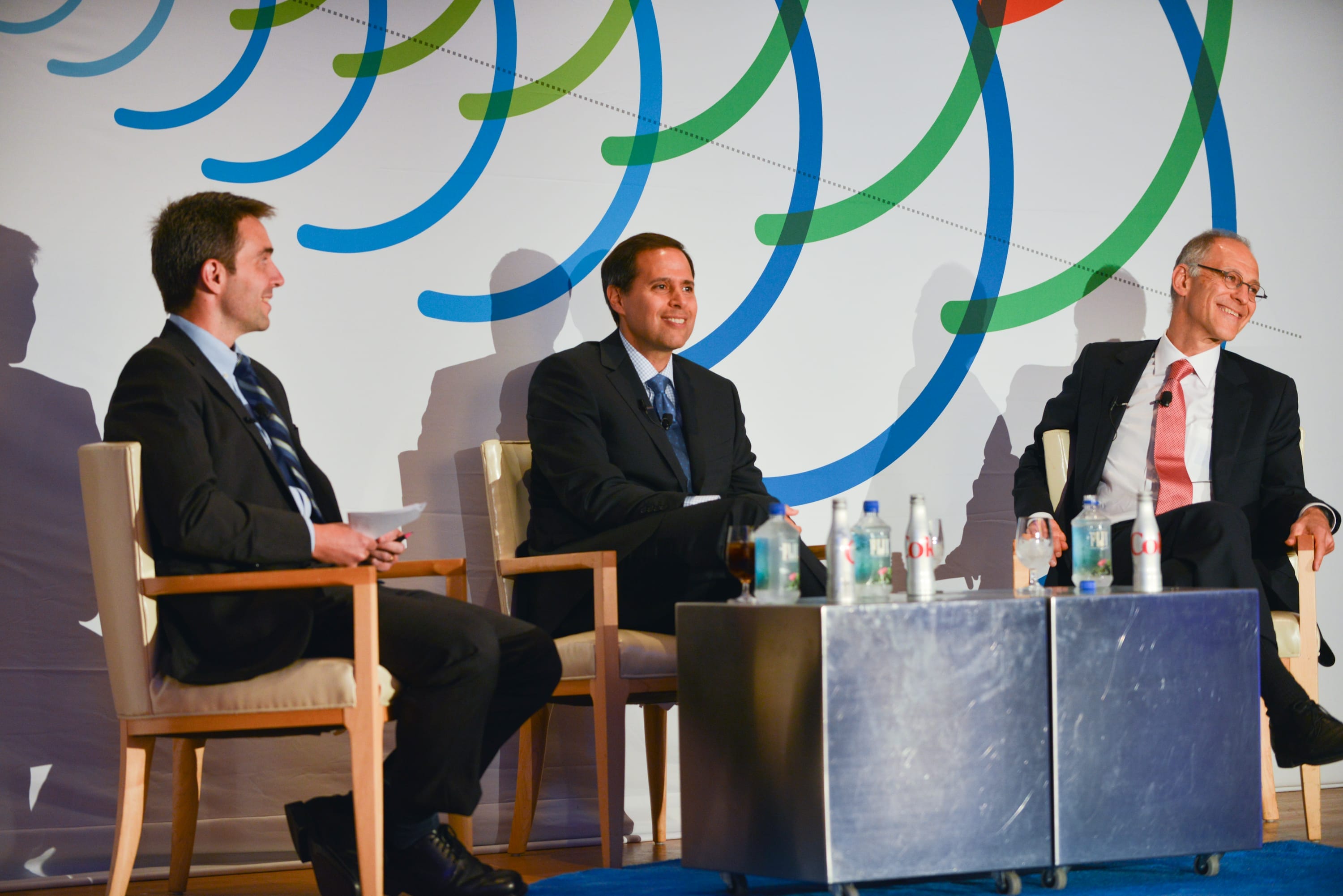October 1 is go time for a key component of health care reform—the state-based health insurance exchanges.
Ezekiel Emanuel, the Diane v.S. Levy and Robert M. Levy University Professor, stressed the importance of the implementation; it is the biggest expansion of health care reform to date.
“This is a pretty pivotal time,” he said of the exchanges, speaking at an event sponsored by Wharton Lifelong Learning and the Penn Wharton Public Policy Initiative held in, of all places, Washington, D.C., earlier in September.
The exchanges will be online platforms designed to help individuals find health coverage. Either states will run them alone, or in partnership with the federal government.
“It’s a critical time for outreach,” said Emanuel’s colleague, Dan Polsky, professor of medicine at the Penn Health System and in the Wharton Health Care Management Department. First in line for the exchanges will be the people who need health insurance the most—the ill, infirm, old and subsidized. Important for the exchanges’ successes will be if younger and healthier individuals also join, thereby reducing the risk of adverse selection and escalating costs.
Editor’s note: Watch the full talk between Emanuel and Polsky in the above video, “The Road Ahead for Health Care Reform.”
Case in point: Emanuel’s barber. The last time Emanuel had his hair cut, he found out that his barber has been without health insurance for a decade. His barber didn’t know he was eligible for coverage through the exchanges or even that the exchanges were going live. Like this barber, Emanuel said, perhaps as many as half of eligible individuals don’t know about the exchanges.
Still, the Congressional Budget Office has estimated as many as 7 million people will join the exchanges in their first year. Emanuel predicts even more.
“By 2016, it will be equivalent to the Amazon shopping experience,” said Emanuel, who also serves as a professor of Medical Ethics and Health Policy in the Perelman School of Medicine and Penn’s vice provost of global initiatives.
His fear will be that the exchanges will be too popular and the system won’t be able to handle the demand.
Another common fear is that many employers will end their benefit plans and send their workers to the exchanges to find coverage—or worse, employ fewer workers altogether,
Polsky disputed that hypothesis. “The insurance product has value to the employee,” he said, meaning that employers will still need to offer it as part of a compensation package to attract and retain talent.
The overall impact of exchanges will be a more flexible workforce—with employees not being tied to one job for fear of losing health benefits. They will have more power, more choice. Total compensation may even increase because of it, explained Polsky, who doubles as director of research at the Leonard Davis Institute of Health Economics.
Emanuel pointed to Massachusetts, which held the first health care reform experiment in the U.S. starting in 2008. The evidence shows that most employers did not dump workers into its exchange. Instead, they offered more insurance to employees.
We do not have long to wait to see what will happen with the experiment on a national scale.

























